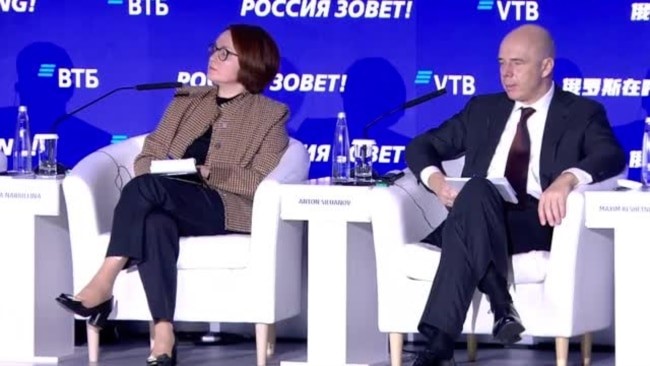Russian mix of Putin's ‘overheated’ economy
Even mayonnaise at the holidays this year will be 13.5 per cent more expensive, while the real savings of citizens are shrinking despite growth figures inflated by warlike industrial production. China takes note of the liberation of large market spaces and tries to occupy them while avoiding risks as much as possible.
Moscow (AsiaNews) - According to all economic indicators, with galloping inflation and continuous price increases of basic necessities, in Russia even preparing the Russian Olivier salad, which is a must on holiday tables in the New Year, is becoming a luxury. President Vladimir Putin has appealed to investors to put new blood into the ‘overheated’ economy, while Central Bank President Elvira Nabiullina is unable to find measures to stem the collapse of the rouble and the entire system.
Speaking at the 15th Vtb Bank Investment Forum, entitled ‘Russia Calls!’, Putin declared that ‘our enemies wanted to inflict a strategic defeat on Russia, but their plans failed’. In fact, it was Finance Minister Anton Siluanov who described Russia 's economy as “overheated”, and Nabiullina's predictions of inflation returning to acceptable levels of 4% extended to 2026, announcing further short-term increases in interest rates and mortgage rates.
Foodstuffs, including Olivier's main ingredient, mayonnaise, are rising, and New Year's Eve lunch will be at least 13.5% more expensive, despite Putin's statement at the forum that the increase is only 8.8%. The real savings of citizens are being reduced, and this is one of the worst signs, in the comments of economists. The forum was attended by representatives of the financial world from India, China, Turkey, the Persian Gulf countries, Africa, Central and South-East Asia, as well as other countries that have been offered to produce their wares in Russia, which has ‘shown great resilience in difficult circumstances, adapting to macroeconomic challenges and opening up new horizons for domestic growth’.
Independent observers, such as Russian economists Maksim Blant and Boris Grozovsky, also emphasise the severe shortage of labour due to the war-related mobilisations, which is also contributing to the increasingly expensive business credits. According to Blant, as reported by Radio Svoboda, Putin's optimism about the reduction of unemployment is definitely unfounded, because ‘it is one of the natural limits of an economy that is unable to react to stimuli’. War industrial production, which is calculated in roubles, inflates the economic data without the possibility of verifying how much it really affects the country's entire system.
While prices rise, GDP remains stagnant, the economists observe, and the war economy bias makes the situation of the entire society more and more critical, moving ever more towards stagflation. It is no coincidence, Grozovsky points out, that China invests heavily in the Russian economy, but does not allow its workers to move to Russia, making them stay within their own country to avoid the risk of being left without not only economic, but also legal and social protections. ‘If you have to open a factory, you need guarantees that it won't be nationalised within five or ten years, and you don't know what will happen after Putin, who is not so young any more,’ notes the expert.
The Russians themselves are not rushing to put their money into the super-expensive state credit and long-term bond programmes, not knowing how it will turn out as Putin ‘is systematically destroying all legislative and institutional guarantee institutions’, Grozovsky points out, and the certainty of private ownership is also lacking. Blant also agrees that ‘under these conditions it is naive to count on large foreign investments in Russia’. China merely takes note of the liberation of large market spaces, and tries to occupy them while avoiding risks as much as possible. For Putin, however, the current situation ‘fully meets expectations’, and everyone noticed the pallor on Elvira Nabiullina's face when the president uttered these words.
11/08/2017 20:05







.png)










